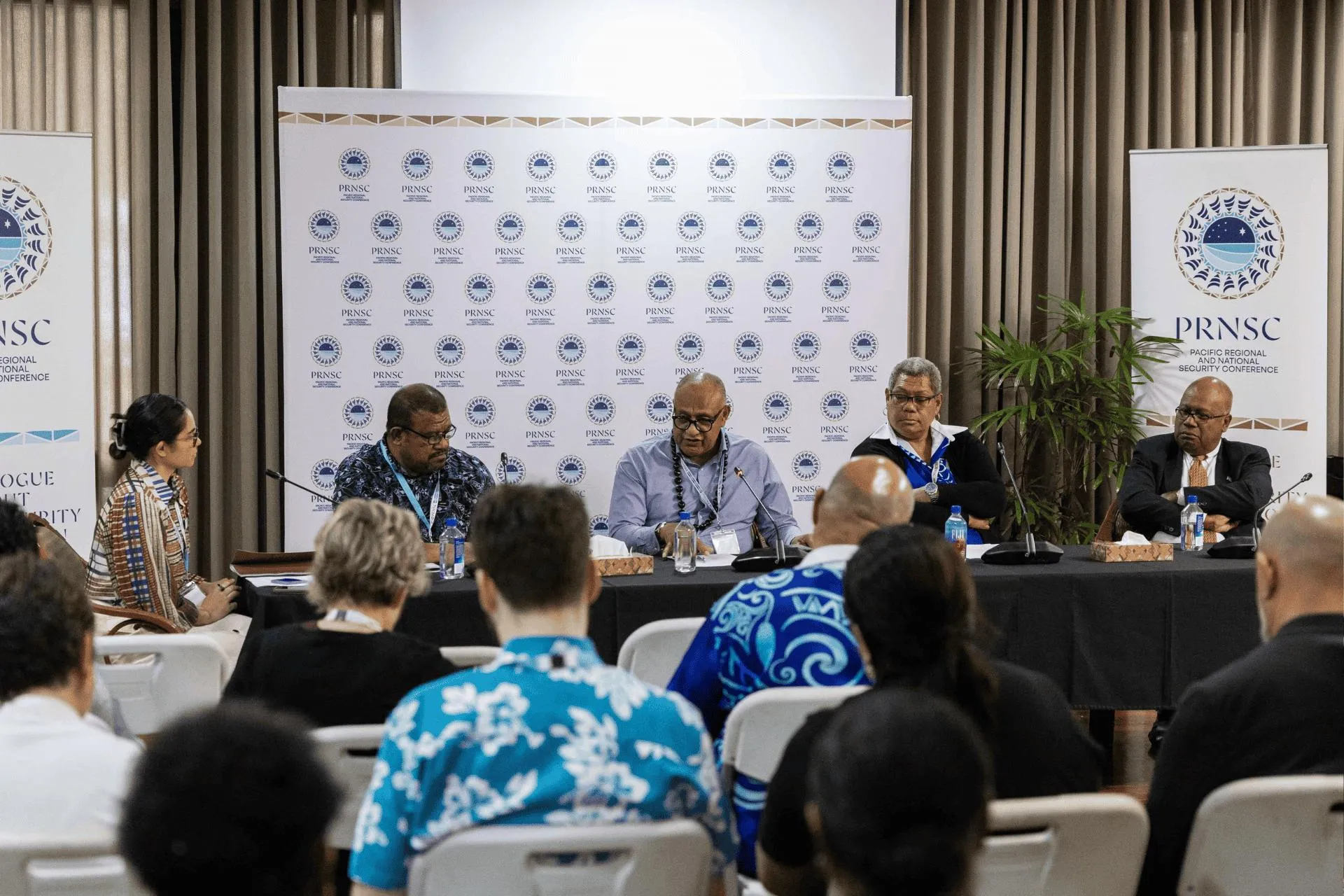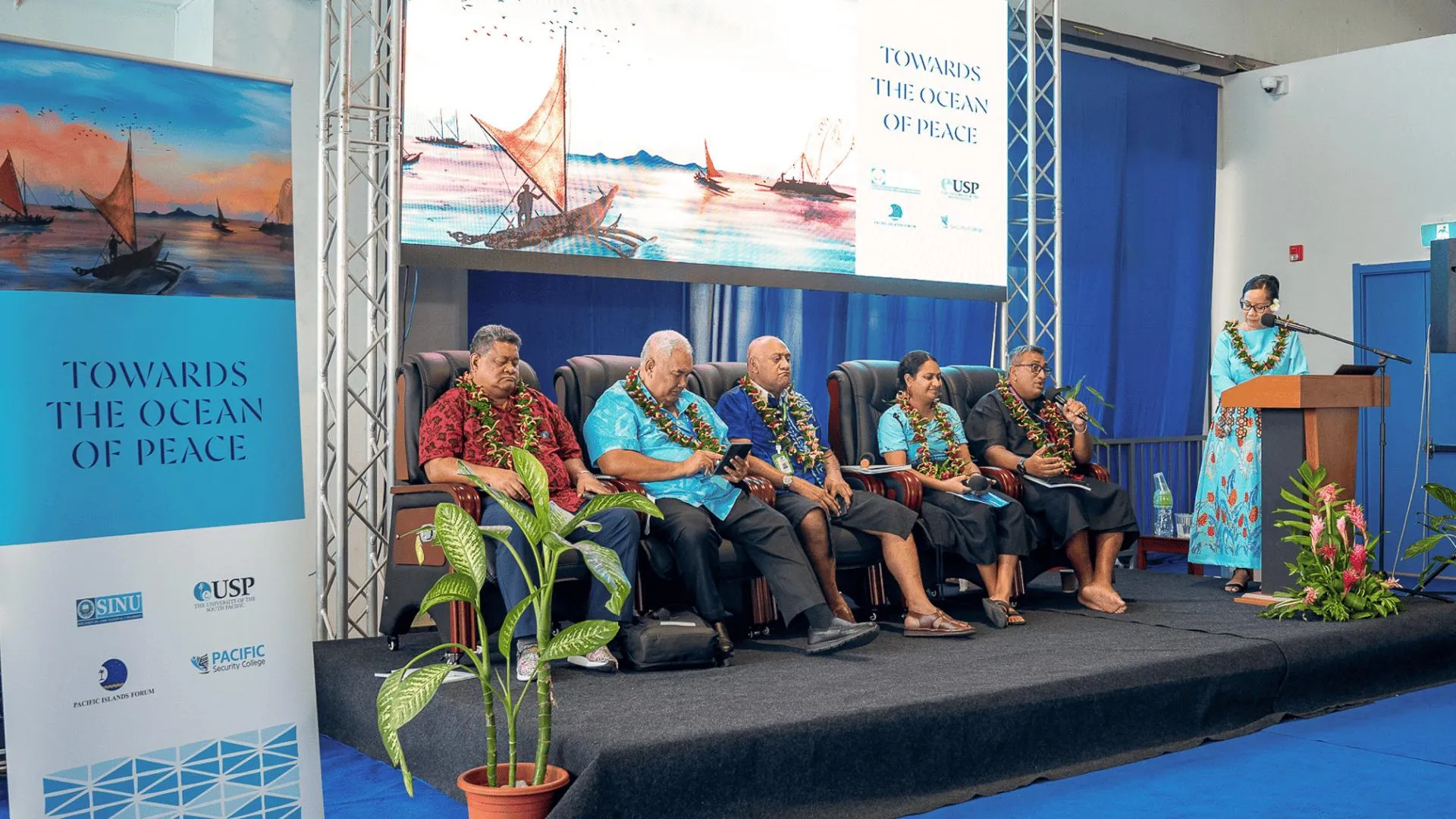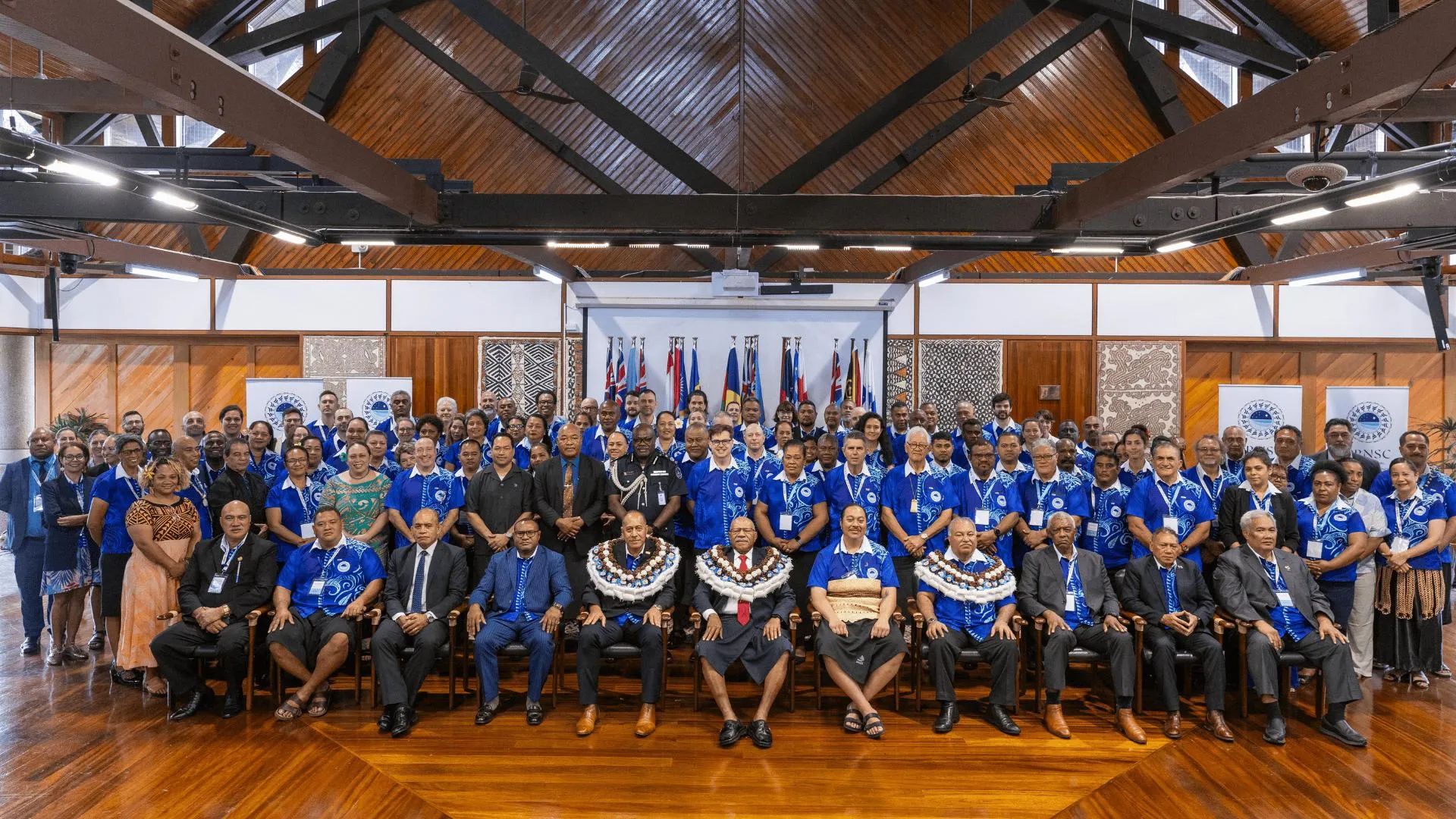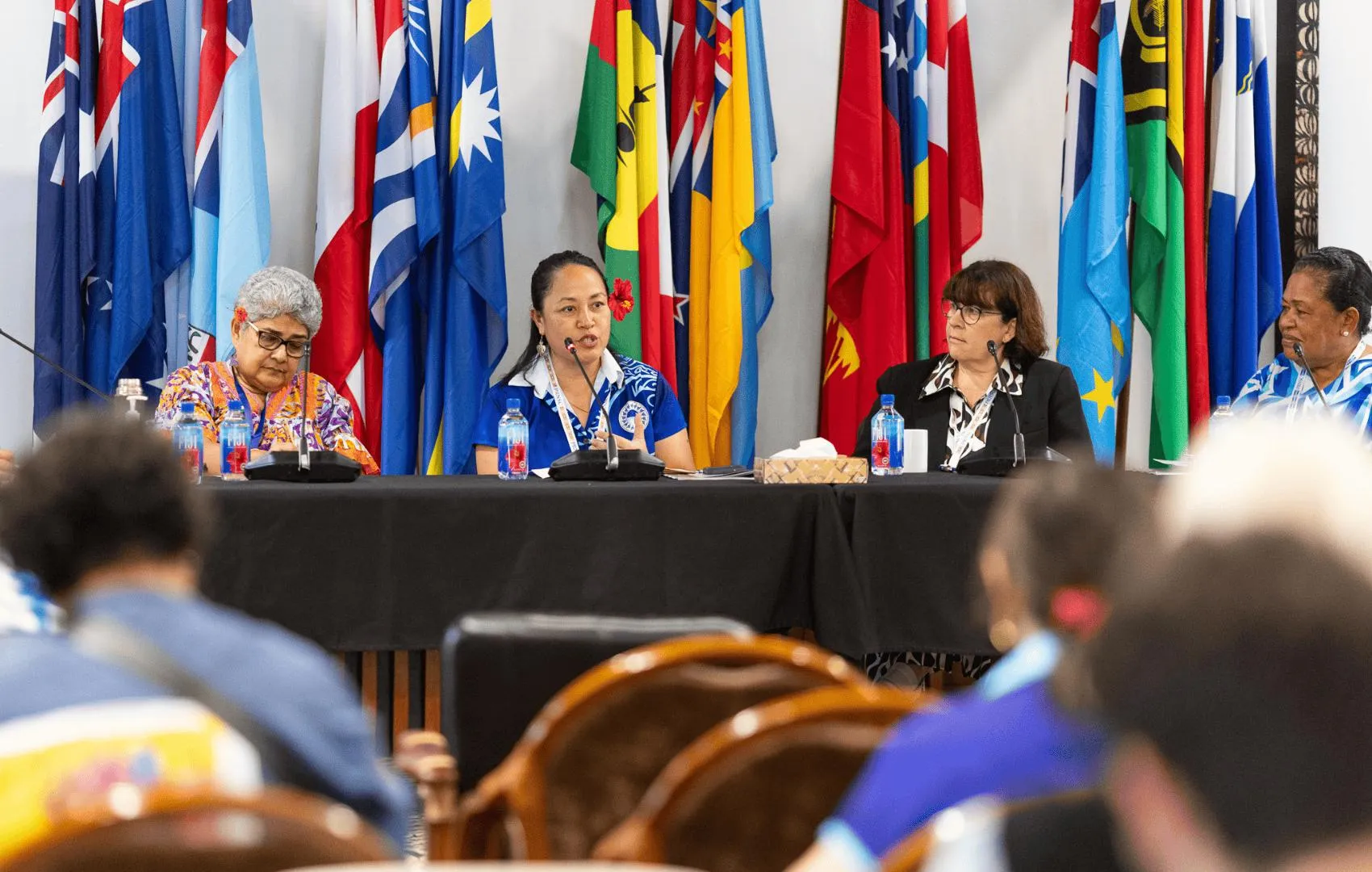Safeguarding maritime and environmental resources key to Pacific security, officials say

The Maritime and Environmental Resources panel at the 2025 Pacific Regional and National Security Conference.
Regional leaders and experts have called for bold, collective leadership to protect the Pacific’s maritime and environmental resources, warning that the region’s security, food systems and livelihoods are under growing threat from climate change, illegal fishing and deep-sea exploitation.
At a high-level panel on Maritime and Environmental Resources during the 2025 Pacific Regional and National Security Conference, speakers urged action on integrated ocean governance, sustainable fisheries and biodiversity protection, underpinned by the 2050 Strategy for the Blue Pacific Continent and the Boe Declaration.
Forum Fisheries Agency Director General Mr Noan Pakop highlighted the value of the fisheries industry to the Pacific, but warned current trends in illegal, unreported and unregulated (IUU) fishing and the impacts of climate change could destabilise Pacific economies if not addressed.
“We can take full advantage of the region’s tuna stocks in economic terms. Apart from the food security and supporting our populations, it provides the potential for economic prosperity throughout the region,” he said.
“But it comes with challenges as well. How do we protect that economic value? How do we protect the fisheries from IUU fishing from the outside? How do we protect from over-fishing? That is the starting point for a cooperative arrangement within the region.”
Mr Pakop emphasised that Pacific leadership must drive new approaches to sustainable fisheries management that are regionally designed and enforced, and also raised the need for innovative approaches, including more downstream processing, to extract more value from fisheries.
“Collectively, about 26 to 28,000 Pacific Islanders are employed either in the fishing sector or the processing sector, and it’s worth about 1 billion in terms of export revenue,” he said.
“That could increase three times, four times if we go into development initiatives like the East New Britain Initiative, where our members can cooperate together.”
Echoing this, Pacific Ocean Commissioner Dr Filimon Manoni noted the critical need for the region to assert its own terms in global forums and resource negotiations.
“We cannot remain passive and let these decisions be made by others, because our future is intrinsically tied to global decisions about what we want to do on the ocean.”
Dr Manoni stressed the importance of frameworks that reflect Pacific values and solidarity, and acknowledged several Pacific-led initiatives and partnerships focused on ocean conservation and sustainable marine management, including in Cook Islands, Palau and the Republic of the Marshall Islands.
“More work remains to be done, but we are taking steps in the right direction. Hopefully in the next few weeks, we will see how this support and pledges will unlock the finance that is necessary to support these commitments going forward.”
Fiji’s Permanent Secretary for Civil Service and Public Enterprise Mr Amena Yauvoli reminded participants of the existing regional legal frameworks that must be fully utilised.
“There are a lot of legal frameworks that we can refer to and of course in our maritime zones we have the Maritime Zones Act, we have the Offshore Fisheries Management Decree, we have the Climate Change Act, we have the Environmental Management Act. These are pieces of legislation that are there and that we should be utilising effectively.”
He added that enforcement and coordinated implementation across ministries is critical to respond to growing risks such as biodiversity loss, pollution and seabed mining.
“What we’ve been trying to do is look at the whole of government approach. When you talk about this issue, it’s not only a Ministry of Environment issue or Ministry of Fisheries issue – it’s all our issue.”
Moderated by Dr Philippa Louey of the Pacific Security College, the panel addressed a wide range of interconnected security concerns – from the risks of unregulated deep seabed mining to the need for regional parametric insurance mechanisms to buffer climate shocks.
“Lands, waterways and oceans have always been central to the security and the wellbeing of Pacific peoples and communities. However, today, these ecosystems face unprecedented pressures from a range of factors, including climate change, over-exploitation, pollution, and growing geostrategic competition. The security consequences of such strain are both significant, but they’re also changing,” Dr Louey said.
Dr Raijieli Taga, Permanent Secretary for Foreign Affairs, emphasised the importance of integrating traditional knowledge into new scientific methods and processes, and the need for Pacific unity to face the threats and challenges facing the region.
The panel concluded that achieving an Ocean of Peace requires robust Pacific-led legal, policy and enforcement frameworks grounded in traditional knowledge and powered by collective action.


